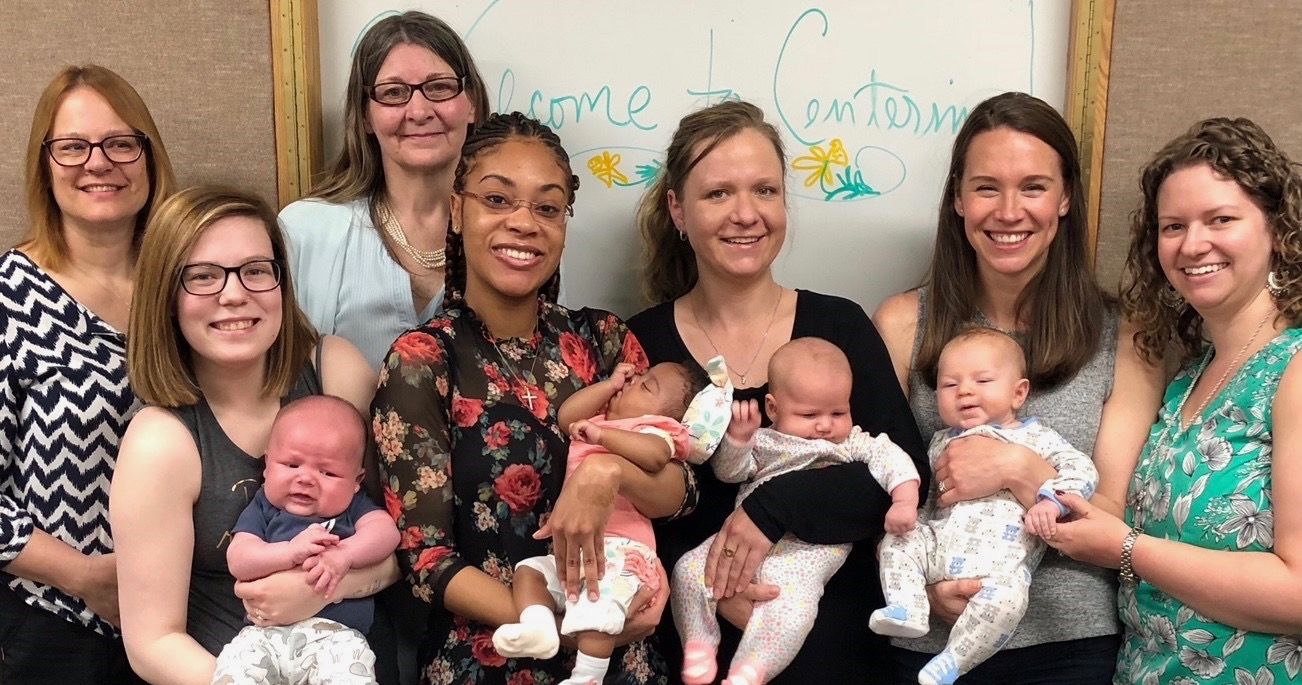Centering pregnancy is a different approach to prenatal care. Centering does follow the recommended schedule of ten visits. Each appointment is 90 minutes to two hours, depending on the day. Assessments get done with weight, blood pressure, and belly checks. Following the assessments, a group of 8-10 women per centering group will circle up to discuss the day’s topic. Each centering group is facilitated by a midwife, doctor, or nursing professional trained in centering pregnancy facilitation.
During the ten centering prenatal appointments, different topics related to pregnancy, such as nutrition, pain management, newborn care, and even post-partum depression, are discussed in a timely fashion as the pregnancy progresses. These topics are introduced by the facilitators, but ultimately, the participants have a guided discussion with each other. Centering has a curriculum that is followed.
Each participant has a centering notebook. The notebooks provide information to follow with the topic of discussion, as well as areas for each woman to journal, keep track of weight, blood pressure, lab testing, and fetal movement. It serves as a way for each woman involved to have some control over her care, guide her questions and concerns, and keep in touch with pregnancy feelings and progression of baby growth.
It is clear how this type of prenatal care can be beneficial, although it is not for everyone. Some women prefer the traditional appointments with providers due to scheduling conflicts, work, and time involved. Centering allows each patient to take some active control in their own care, promotes self-confidence, gives more time with providers, and creates a circle of friends for support during the pregnancy and birth of their child.
Although this is a perfect education program for first time mothers, many moms enjoy the program even if they have already had children. Numerous studies have supported centering pregnancy promoting better health outcomes, less disparities, and resulting in well-educated patients that are involved in their own health care and promotion.
The groups are put together based on due dates so the topics are appropriate for gestation. This also allows the group to potentially be delivering at the same time. It is not at all uncommon to see dads speaking to each other in the halls after spending time together in centering.
Although not required, dads are encouraged to attend centering with the mothers-to-be. During the course of the pregnancy, each centering group will have a small baby shower as a fun activity within the group. These groups also come back for a reunion party following the births of their babies. Centering benefits single moms, married moms, young moms, old moms, new moms, and veteran moms. All of these different backgrounds aid to the dynamic of each group to help promote discussion and different levels of expertise.
RELATED: The Benefits Of Taking A Prenatal Class
To learn more about centering programs, you can visit centeringhealthcare.org. If your facility is interested in offering centering, there is also a readiness assessment and contact information to get started.
Jamie Prock, RN-BSN, is an OB Nurse currently practicing within the Indian Health Service.

